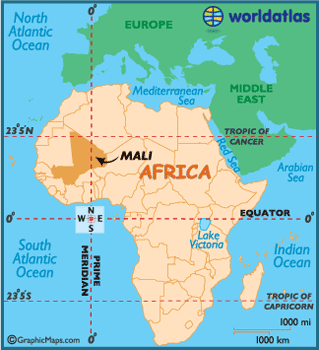Last night I went to a Thievery Corporation concert, described as "the Raj’s palace-meets-1920s-Parisian-opium-den-meets-1970s-Jamaican-beach-party." Listen to this song, and/or go all out and Grooveshark them for the day. Fun fact for those of you familiar with DC: Thievery Corporation was started at Eighteenth Street Lounge by one of the owners, Eric Hilton. Hilton also owns or invests in: Marvin, Brixton, Patty Boom Boom, The Gibson, Dragonfly, Local 16, American Ice Company, and U Street Music Hall -- aka all the places I like!
- Says Gibson: “Well, I do program some of the music for the bars, too. If you ever go to Brixton, I’m DJing, if you go to the Gibson, I’m DJing. I make nine-hour playlists that just play. There’s probably 12 of them, and that’s a crazy endeavor. But, I really don’t play “Thievery type” music, it’s usually very eclectic and older music that I like.”
I've never had a big dog -- these are kind of amazing: “21 Dogs Who Don't Realize How Big They Are.”
Well this is interesting. “Mali and the Afghanistan comparison.”
- The French intervention in Mali this week raises the specter of another first-world power’s rather recent mission to weed out Islamic militants. As France’s jets pummel the desert and its troops face ground battles against al Qaeda-linked rebels, a troubling analogy has presented itself in media reports and analyses: Will Mali become France’s Afghanistan?
- “Al-Qaida never owned Afghanistan,” former United Nations diplomat Robert Fowler told the AP. “They do own northern Mali.”
- Now, with hundreds of French troops advancing from the Malian capital Bamako toward Islamist insurgents, France risks embroiling itself in a protracted conflict in a faraway country.
And more on Mali (too much? I think it's so interesting!): “Behind Mali’s conflict: myths, realities & unknowns.”
- Since the French military intervention in Mali, known as Operation Serval, began last week, the internet has been buzzing with talk about its motives. Is France really only trying to contain a terrorist threat, as it claims? Or do major world powers have other, more sinister interests at stake? At its root, what is the conflict in Mali about?
- This discourse, generated largely by journalists, analysts and activists unfamiliar with Mali, has been far too speculative for my tastes. Let’s consider what we do and don’t know about the causes and effects of international interest in Mali.
- Mineral rights: Mali is among Africa’s top gold producers, exporting between 36 and 60 metric tons annually over the last decade; gold is a key source of revenue for the Malian government.
- Blowback from US military training
- Neocolonialism: The imminent collapse of the Malian military last week at the hands of Islamist forces in the Mopti region rendered that option moot. “La Françafrique” isn’t dead, but times have changed: by all indications, Operation Serval was a last resort, whereas a few years ago it would have been the default option.
- Mali’s “strategic importance”: A process of reverse reasoning appears to be at work here: If a conflict involving Western military forces is occurring somewhere, that somewhere must, by definition, be “strategic.” But let’s be honest: in and of itself, Mali has no strategic value.
- Islam and Mali: But at least 9 out of 10 Malians are Muslim, they are grateful for the French intervention, and they want no part of the intolerant, totalitarian project reserved for them by the coalition of Islamist groups now controlling Mali’s north.
This is a series of infographics: What does one billion dollars look like?
And while we’re on the subject of incomprehensible numbers, this joke amused me:
- One of [insert world leader’s name of choice]’s advisors was updating him/her on casualty reports from the war. The advisor said, “Mr./Mrs. ____ I have some bad news. There was a firefight in [location] today and 3 Brazilian soldiers died.”
- Mr./Mrs. ____’s face went white. He/she stumbled to his desk and leaned on it for support. Finally, with trembling voice, he/she asked, “How many is a brazillion?” (source)
- Age-otori (Japanese): To look worse after a haircut
- Forelsket (Norwegian): The euphoria you experience when you are first falling in love
- Ilunga (Tshiluba, Congo): A person who is ready to forgive any abuse for the first time, to tolerate it a second time, but never a third time
- L’esprit de l’escalier (French): usually translated as “staircase wit,” is the act of thinking of a clever comeback when it is too late to deliver it
- Pena ajena (Mexican Spanish): The embarrassment you feel watching someone else’s humiliation
- Waldeinsamkeit (German): The feeling of being alone in the woods
Ok that's all I have for you today. Guess what's happening this weekend??? JESS IS VISITING FROM BOSTON! Yay.






